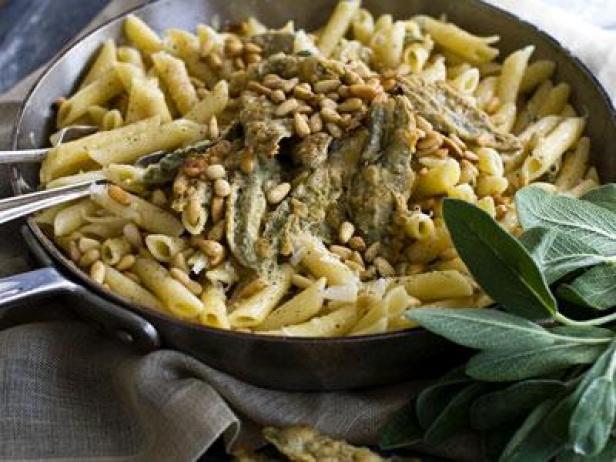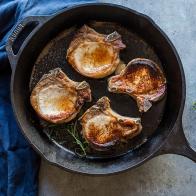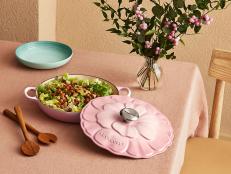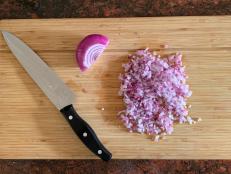Sage — Off the Beaten Aisle

It’s hard to not love an ingredient that loves fat.
And that’s exactly what sage does — it partners up perfectly with foods rich in oils and fats. So why not give it a try? It’s nearly the holidays and time to indulge.
Actually, that’s part of sage’s problem — and why it has a relatively low profile in American cooking compared to other savory herbs, such as basil and oregano.
While we think of all manner of uses for other herbs in all seasons, we tend to pigeonhole sage as a Thanksgiving herb suited mostly for stuffing and turkey.
But the richly peppery-rosemary flavor of fresh sage can more than earn its keep year round. You just need to know how to use it.
Let’s start with what it is. Sage is a perennial related to mint. There are many varieties, including pineapple-flavored sage from Mexico (best suited for desserts).
Sage generally is sold in three forms: fresh, dry ground and rubbed.
Fresh is pretty self-explanatory. When shopping for it, look for leaves that are tender-firm with downy coating and no brown spots.
Rubbed means dried sage leaves that have been quite literally rubbed off the stems. It tends to be pillowy soft and retains flavor well.
Dry ground sage is the least appealing of the three. It has a more muted flavor and doesn’t hold up well in cooking. Skip it.
Because sage pairs so well with dairy, the English have long made a sage-flecked cheese known as sage Derby. So take their cue and add a few fresh sage leaves to your next grilled cheddar sandwich.
The English also like to use sage with sautéed onions, usually destined for a stuffing. So why not toss fresh sage into caramelized onions, then use them to top a pizza with shredded Gouda?
In Germany, sage lands in sausages. And sometimes beer. Not sure about the last one, but I’m inclined to borrow the sage and caramelized onions from England and spoon them into a bun with a grilled sausage.
In Italy, sage rules saltimbocco and osso bucco. But it’s also a natural with butter-drenched pasta.
• Fry chicken livers and onions with fresh sage, salt, pepper and butter. Pulse everything in the processor, then spread over toasted bread. Serve with tomato wedges.
• Make a pesto out of sage, toasted walnuts, lemon juice and soft goat cheese. Slather on a ham sandwich (the Germans love sage with ham).
• Roast cauliflower florets, then toss with melted butter, chopped fresh sage, cooked penne, shredded cheese and an egg. Spoon the whole thing into a loaf pan and bake for about 30 minutes. Cool slightly then slice. Some ham would be a fine addition, too.
This is a great example of how the simplest dishes can be overwhelmingly good. For a heartier version of this dish, add cooked chicken or apple chicken sausage.
Bring a large saucepan of salted water to a boil. Add the pasta and cook according to package directions. Reserve ¼ cup of the cooking water, then drain the pasta, return it to the pot, cover and set aside.
Meanwhile, in a small bowl, lightly beat the egg. Place the flour in a second bowl, then mix in a bit of salt and pepper.
One at a time, dunk each sage leaf first in the egg, then in then in the flour. Shake off excess flour, then set aside.
In a small skillet over medium-high heat, melt the butter. When it just starts to bubble, add the sage leaves and fry for 1 to 2 minutes per side, or until lightly browned. Transfer to a plate and set aside. Add the pine nuts to the skillet and toast in the remaining butter for 1 minute.
Drizzle the butter and pine nuts over the cooked pasta. Sprinkle in the Parmesan and use tongs to toss until melted. While tossing, drizzle in just enough of the pasta cooking water to create a thick sauce. Season with salt and pepper.
Divide between serving plates, then place or crumble fried sage leaves over each serving.
J.M. Hirsch is the national food editor for The Associated Press. He is the author of the recent cookbook High Flavor, Low Labor: Reinventing Weeknight Cooking . He also blogs at jmhirsch.































































